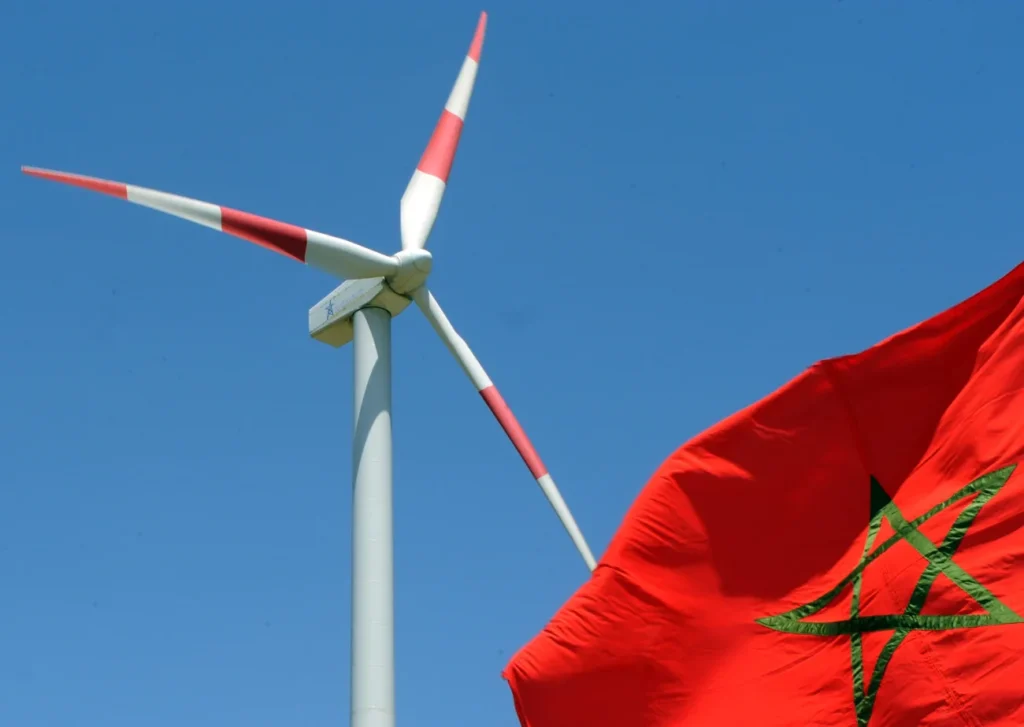The world is quickly changed towards renewable energies, which is due to the urgent need to combat climate change and reduce the dependence on fossil fuels. Morocco has developed as a guide In Africa’s energy transition, they invest in large-scale solar and wind projects to achieve its goals for renewable energies. Despite considerable progress, the challenges remain in ensuring the efficient integration, storage and distribution of renewable energies due to their inherent intermittenz.
At the same time, Industry 4.0 revolutionizes energy management through automation, AI, IoT, Blockchainand intelligent data analyzes. These technologies offer intelligent solutions to optimize solar parks, wind turbines and energy and enable the monitoring of real time, prediction and decentralized energy transactions. By using the industry 4.0, Morocco can improve the reliability, efficiency and scalability of its sector of renewable energies and ensure more sustainable and self -sufficient energy -future.
This article examines how intelligent grids and IoT can improve energy distribution, how the AI-controlled forecast can extend the lifespan of the energy infrastructure, how blockchain technology can improve transparency and safety in energy transactions and how robot automation can optimize the use and maintenance of system systems for renewable energies. It also examines the challenges and opportunities that Morocco faces in the implementation of Industry 4.0 technologies, and offers insights into the overcoming of obstacles and as the world’s leading provider of Smart Energy Innovation.
Morocco’s renewable energy sector grows Fast, with large investments in solar, wind and hydropower projects. However, the variability of the production of renewable energies – the changing weather conditions – excites solutions for smart energy management. Industry 4.0 technologies can tackle this problem by providing data analyzes in real time, predictive modeling and automated decision-making and enable more stable and efficient energy supply.
Intelligent grids, which are improved with IoT sensors and AI algorithms, enable real-time adjustments in the energy distribution and ensure that the power supply is dependent where it is most urgently needed. For example, if solar collectors produce excess energy during the day, an intelligent network can store the excess in battery systems or redirect in areas with high demand. This prevents energy waste and optimizes lattice stability. Through the use of intelligent measuring systems, Morocco can also enable consumers to monitor and manage their energy consumption more efficiently and to promote sustainable consumption habits.
Another critical part of Industry 4.0 in renewable energies is the AI-controlled forecast. Traditional maintenance strategies in solar and wind farms are often based on manual inspections and planned maintenance, which leads to unexpected failures and costly repairs.
AI can analyze historical performance data and recognize early signs for the breakdown of devices and enable proactive maintenance interventions. In large-scale projects such as the noor solar complex, AI-driven surveillance systems on solar collectors can detect the dust accumulation and trigger an automated cleaning process in order to maintain optimal energy performance. Similarly, wind turbine sensors can monitor the vibrations and the mechanical voltage levels, prevent potential degrades and extend the lifespan of critical components.
In addition to energy management and maintenance, the blockchain technology revolutionizes how renewable energies are traded and tracked. In a decentralized energy market, blockchain can provide safe, transparent and manipulation -proof records of any kilowatt hour produced and consumed. In this way, households and companies with solar modules on the roof can sell excess energy directly to the network or to other consumers and create a peer-to-peer energy trade system. Blockchain can also be used to certify green energy sources to ensure that consumers receive electricity from verified renewable sources and thus strengthen the trust of investors into the energy sector Morocco.
The role of automation and robotics in renewable energies also gains the drive. Autonomous drones are increasingly used for wind turbine inspections that are equipped with thermal imaging cameras to recognize structural weaknesses.
Robot systems can be used to clean solar panels to ensure that efficiency is maintained in hard desert environments without human intervention. In addition, robots with AI-driven meetings for the construction of large projects for renewable energies, the increase in precision and the reduction of labor costs are examined.
Despite the promising potential of Industry 4.0 in the Morocco Cosses, Renewable Energies have to be tackled several challenges. The high initial costs for digital transformation are a financial barrier for many energy generators. The implementation of smart grids, AI Analytics and IoT networks requires considerable investments, which can be a challenge for developing countries.
In addition, a lack of special skills in AI, data science and cyber security is an important obstacle to the full use of these technologies. The training of a new generation of energy professionals is essential for Morocco to close the knowledge gap and to ensure long -term sustainability in the industry.
Cyber security risks are now a growing problem because the energy infrastructure becomes more digitized. Smart grids and IoT devices are susceptible to cyber attacks, which can lead to disorders of energy supply. To address this, Morocco must invest in robust cyber security measures, data encryption and AI-controlled threat detection systems in order to protect the energy infrastructure.
Despite these challenges, the chances outweigh the risks. Through the introduction of Industry 4.0, Morocco can reduce energy waste, improve efficiency and create new employment opportunities in high-tech sectors such as AI development, IoT engineering and blockchain energy management. In addition, Morocco can attract foreign investments by demonstrating his commitment to Smart Energy solutions and positioning itself as a leading provider for Africa’s transition.
Diploma
Morocco is driving its sector for renewable energies and is aiming 52% of renewable energies by 2030, but is facing challenges due to the intermittent of solar and wind power. Industry 4.0 technologies such as AI, IoT, Blockchain and Automation offer solutions for Smart -Energy management, forecast and decentralized energy trade.
Smart grids improve the energy distribution, the AI reduces downtime due to prediction, and blockchain ensures safe, transparent energy transactions. Automation and robotics improve efficiency in maintaining solar and wind infrastructure. Despite high costs and cyber security risks, strategic investments and staff training can help lead the smart energy transition to Morocco and to ensure more efficient and sustainable energy.





